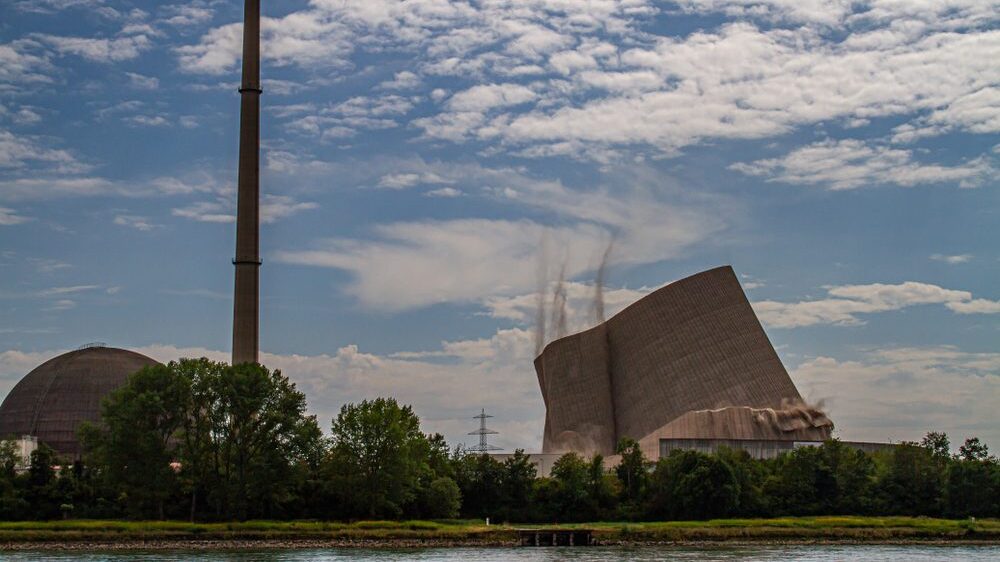
Muelheim-Kaerlich, Rhineland Palatinate, Germany: breakdown of the cooling tower of the closed-down nuclear power plant, 2019.
Photo: Jokue-photography / Shutterstock.com
German plans to mothball its three remaining nuclear reactors have come in for stern criticism from the director of the International Energy Agency (IEA), Fatih Birol, who labelled the decision ‘a strategic mistake.’
Nuclear power production will cease later this week in Germany as part of a decade-long phaseout schedule, spearheaded by the Green Party, to shut down the nation’s atomic industry. Germany had previously stalled plans to end atomic power production due to scarcity concerns, but reverted to taking a tough line against nuclear energy as part of the EU’s green transition.
Birol referred to the German decision as naive and based on misleading Cold War experiences, during which Russia never blackmailed Europe by cutting off gas supplies. The Turkish-born energy chief called for serious “self-criticism” among non-nuclear states in Europe and added that Germany should have considered delaying the closures due to looming energy shortages next winter.
The IEA, an intergovernmental agency providing policy recommendations on energy security, has consistently taken a pro-nuclear stance as a viable alternative to fossil fuels. Birol has previously said that Russia’s use of hydrocarbons as a form of economic warfare was doomed to failure. But he warned that current European efforts to prepare for an energy shortage next winter were insufficient.
German pro-nuclear advocates have argued against the plans describing the closures as needless. The German government has shut sixteen nuclear reactors since 2003, with Angela Merkel committing to a non-nuclear future following the Fukushima disaster in 2011. A majority of German citizens see nuclear power generation as a keystone of Franco-German cooperation and reject the nuclear plant closures.
Germany is increasingly seen as a pariah among EU nations with its antagonistic attitude towards nuclear power. This position is in stark contrast to the French approach, as evidenced by its recent nuclear partnership agreement with China .
Part of a policy of ‘engineered scarcity’ masquerading as sustainability politics, the decision to terminate nuclear power production in Germany is part of a pattern of dysfunctional strategy by Berlin in the face of the critical energy situation confronting Europe.
